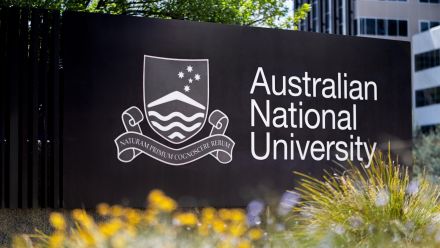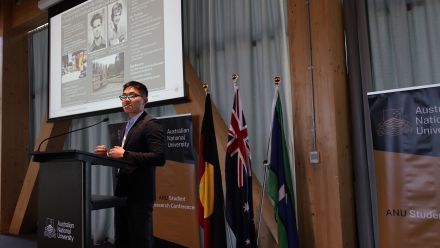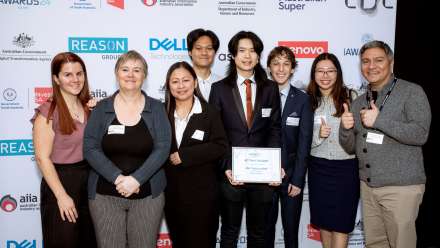ANU Professor appointed as a UNHRC Mandate Holder
I am committed to contribute to understandings of how to decolonise human rights and develop deeper knowledge of a whole range of concerns that impact people of African descent.
An International Relations expert and human rights advocateat the ANU Coral Bell School, Professor Bina D'Costa has been appointed as the United Nations Human Rights Council Special Procedures Mandate Holder in the (WGEPAD). 
Special procedures are either an individual (called 'Special Rapporteur' or 'Independent Expert') or a working group composed of five members, one from each of the five United Nations regional groupings: Africa, Asia, Latin America and the Caribbean, Eastern Europe and the Western group.
The WGEPAD is composed of five independent experts appointed on the basis ofequitable geographic representation. During herthree-year appointment, Bina will representthe Asia-Pacific region.
°Őłó±đ WGEPAD was first established by the UN Commission of Human Rights resolution 2002/68 of 25 April 2002, in accordance with the request contained in the Durban Declaration and Programme of Action adopted by the World Conference against Racism, Racial Discrimination, Xenophobia and Related Intolerance in 2001. 
The Working Group is specifically mandated to examine the problems of racial discrimination, faced by people of African descent, to collaborate with states to devise policies aimed at eradicating racism, racial discrimination, xenophobia and other related intolerance; as well as to propose measures to ensure access to justice for all persons of African descent.
Each year, the members carry out country visits and technical visits and preparethematic reports of specific importance that are then presented in the United Nations General Assembly and the Human Rights Council. It also addresses specific cases of alleged serious human rights violations of the rights of people of African descent through communications with Governments.
"Our shared goal towards advancing and protecting the rights of people of African descent in all their diversities is a key motivation for me to take up this position," Bina said.
"In this role I bring with me more than 25 years of advocacy, research and field experience in academia, human rights organisations, and humanitarian aid sector. I have spent most of my career researching post-conflict environments, fragile contexts and challenging political and security settings, particularly in South and Southeast Asia, Southern Europe, East Africa, and the Horn of Africa."
Aside from academia, Bina has worked in UN agencies across South and Southeast Asia, Eastern and Southern Africa, and the Middle East. 
Bina is an activist-scholar of global politics at home in classrooms and conflict zones alike. She studies wars and forced migration, children and young people's protection in emergencies, conflict-related sexual violence and war crimes, human rights advocacy, and indigenous rights. She is also an Australian Research Council Future Fellow. Bina has written many articles and six books including Cascades of Violence, co-authored with John Braithwaite (2018); Children and the Politics of Violence in South Asia (2017), and Nationbuilding, Gender and War Crimes in South Asia (2011, 2013).
She has worked as a senior UN staff member, most recently at UNICEF to build its Migration and Displacement program at the Office of Research-Innocenti in Florence, Italy. As a frontline researcher and humanitarian practitioner, she has served in Europe's and Horn of Africa's refugee emergencies and, also the UN Rohingya Emergency First Response Team in Cox's Bazar, Bangladesh developing guidelines of protection programs.
Binahas also provided inputs and technical advice to transitional justice processes including witness protection and victim support mechanisms at the International Criminal Tribunal for Rwanda (ICTR), Office of the United Nations High Commissioner for Human Rights (OHCHR), International Crimes Tribunal, Bangladesh, and civil society transitional justice initiatives in Pakistan, Sri Lanka and Cambodia.
Bina received the Distinguished Alumni Award, Kroc Institute, University of Notre Dame, United States in 2020 and the Ann Tickner Award for 'bravery in pursuing high-quality, pioneering scholarship that pushes the boundaries of the discipline with a deep commitment to service, especially teaching and mentoring' from the International Studies Association (ISA) in 2022.
A devoted human rights advocate, Bina plans to use her position in the WGEPAD to work alongside people of African descent and help identify patterns of exclusion that function as barriers to their issues as well as contribute to the framing of human rights advocacy and aspirations at a global level.
"I am committed to contribute to understandings of how to decolonise human rights and develop deeper knowledge of a whole range of concerns that impact people of African descent."
"I am honoured to have been appointed to this position."
Throughout her expansive and illustrious career, ANU has always been at the heart of Bina's story.
First joining the University in 2006 as an early-career researcher, Bina has remained committed to educating the next generation of scholars and leaders.
"I have been a part of ANU life for many years and I have thrived on it."
As she prepares to commence her role in theWGEPAD, Bina credits always having passion in whatever she does.
"I'd encourage any ANU student to always stay true to what your passions are and to wholeheartedly commit to them."


